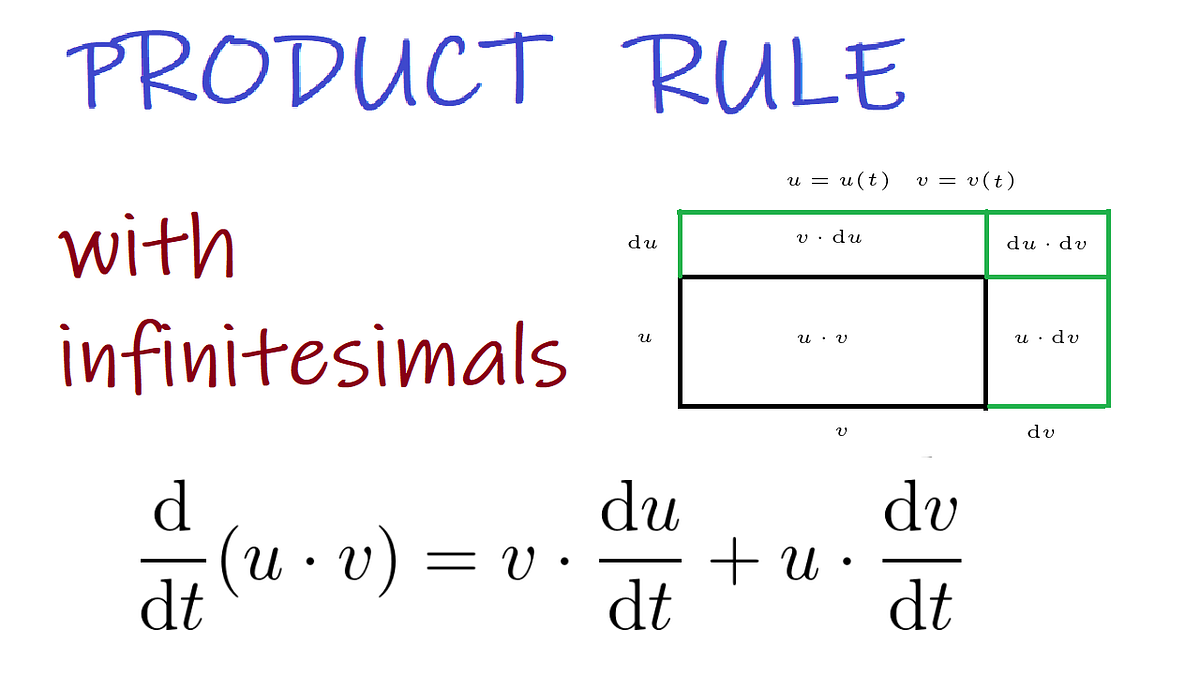AP Calculus BC 2.8 The Product Rule Study Notes - New Syllabus
AP Calculus BC 2.8 The Product Rule Study Notes- New syllabus
AP Calculus BC 2.8 The Product Rule Study Notes – AP Calculus BC- per latest AP Calculus BC Syllabus.
LEARNING OBJECTIVE
- Calculate derivatives of products of differentiable functions.
Key Concepts:
- Product Rule
Product Rule
Product Rule
In calculus, when a function is the product of two separate functions, we apply the Product Rule to differentiate it.

The derivative of a product is not simply the product of the derivatives.
Formula: If \( f(x) = u(x) \cdot v(x) \), then:
\( f'(x) = u'(x) \cdot v(x) + u(x) \cdot v'(x) \)
Why we use:
Think of the product as a combination of changing quantities. If both parts of a product are changing, the total rate of change involves the change from both sides: one while the other stays momentarily still, and vice versa.
Example:
Differentiate \( f(x) = x^2 \cdot \sin x \)
▶️Answer/Explanation
Let \( u(x) = x^2 \), and \( v(x) = \sin x \)
- \( u'(x) = 2x \)
- \( v'(x) = \cos x \)
Using the product rule:
\( f'(x) = 2x \cdot \sin x + x^2 \cdot \cos x \)
Final Answer: \( f'(x) = 2x\sin x + x^2\cos x \)
Example:
Differentiate \( f(x) = e^x \cdot \ln x \)
▶️Answer/Explanation
Let \( u(x) = e^x \), and \( v(x) = \ln x \)
- \( u'(x) = e^x \)
- \( v'(x) = \frac{1}{x} \)
Using the product rule:
\( f'(x) = e^x \cdot \ln x + e^x \cdot \frac{1}{x} \)
Final Answer: \( f'(x) = e^x\ln x + \frac{e^x}{x} \)
Example:
Differentiate \( f(x) = (3x^3 + 1)(\cos x) \)
▶️Answer/Explanation
Let \( u(x) = 3x^3 + 1 \), and \( v(x) = \cos x \)
- \( u'(x) = 9x^2 \)
- \( v'(x) = -\sin x \)
Using the product rule:
\( f'(x) = 9x^2 \cdot \cos x + (3x^3 + 1)(- \sin x) \)
Final Answer: \( f'(x) = 9x^2 \cos x – (3x^3 + 1)\sin x \)
Example:
Differentiate \( f(x) = \sqrt{x} \cdot \ln x \)
▶️Answer/Explanation
Let \( u(x) = x^{1/2} \), and \( v(x) = \ln x \)
- \( u'(x) = \frac{1}{2}x^{-1/2} \)
- \( v'(x) = \frac{1}{x} \)
Apply the product rule:
\( f'(x) = \frac{1}{2}x^{-1/2} \cdot \ln x + x^{1/2} \cdot \frac{1}{x} \)
Simplify:
\( f'(x) = \frac{\ln x}{2\sqrt{x}} + \frac{1}{\sqrt{x}} \)
Final Answer: \( f'(x) = \frac{\ln x + 2}{2\sqrt{x}} \)
